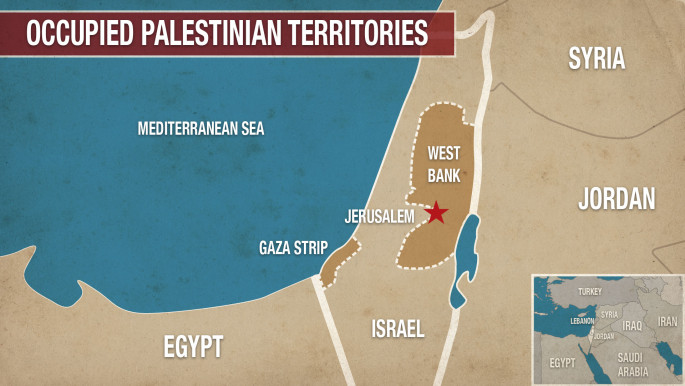Israel's 'predictive policing' sees online crackdown on Palestinians
Israeli security agencies are using advanced technology to trawl through Palestinian social media posts to identify and detain users who have not yet committed a crime.
The practise of predictive policing, which uses algorithms to search huge amounts of data for keywords, has been heavily criticised as it leads to the suppression of online freedom of expression for Palestinians.
Dareen Tatour, 35, was arrested a week after she posted a poem on Facebook entitled "Resist, my people, resist," with Israeli police raiding her home in northern Israel.
On Monday she will find out whether she will be jailed on charges of incitement to violence and supporting a terrorist group, with the maximum term five years.
Posted as a wave of violence shook Jerusalem and the West Bank in 2015, the poem read "Resist, my people, resist them /Resist the settlers' robbery/ And follow the caravan of martyrs."
Wave of violence
Since October 2015 at least 270 Palestinians have been killed by Israeli forces, with a majority shot dead after carrying out attacks or in clashes with Israeli soldiers.
Fifty-one Israelis were also killed in the violence.
 |
|
Many Palestinian attackers post farewell messages before carrying out attacks.
"They didn't understand my poem," Tatour told Reuters in an interview at her home in Reineh in northern Israel, where she is under house arrest. "There is no call for violence. There is a struggle, they cast it as violent."
"The point of the poem was to say 'enough'. A person feels for their people. I am of the Palestinian people. I live this struggle and I spoke it through the poem," she said.
Israeli prosecutors say Tatour issued a call to violence by reading her poem as a soundtrack to a video she posted on Facebook and YouTube, showing Palestinian youths throwing stones and Molotov cocktails at Israeli soldiers.
Tatour is also implicated by other posts than the poem that appeared on 3 October, 2015, Israeli prosecutors say.
"The attempt to present her as an artist, a poet, who merely wrote something innocent distorts the truth," an Israeli Justice Ministry official said.
Online crackdown
Indictments for online incitement have tripled in Israel since 2014, with mostly young Palestinians charged over their online activity.
Tamara Abu-Laban, 16, was detained in East Jerusalem in July. Her father said she had shared a video showing an elderly Palestinian man arguing with Israeli soldiers who said "kill me, I want to die for al-Aqsa".
She was held for two days and barred from using Facebook for 180 days but not charged. Her father said Israel's Shin Bet intelligence agency called him in to say they were keeping an eye on her.
"They are convinced she is going to do something. They told me to be careful. I tried to tell them it's just Facebook - she's just looking for 'Likes'," he said.
Shin Bet chief Nadav Argaman says 2,000 potential "lone wolves" have been stopped by using advanced technology since 2016. A Shin Bet source said some potential attackers were arrested and prosecuted, and others just warned.
Other Palestinians suspects are held in jail without trial under a policy known as administrative detention.
Western intelligences agencies also use similar predictive policing methods to identify individuals of interest but experts say Israel is unique in using them as a basis for detention.
Facebook said public posts can be read by anyone, including law enforcement and intelligence agency officers, according to Reuters. Google, which owns YouTube, declined comment.





 Follow the Middle East's top stories in English at The New Arab on Google News
Follow the Middle East's top stories in English at The New Arab on Google News


